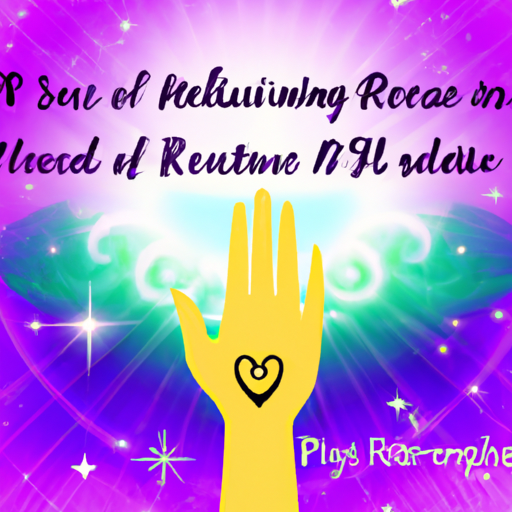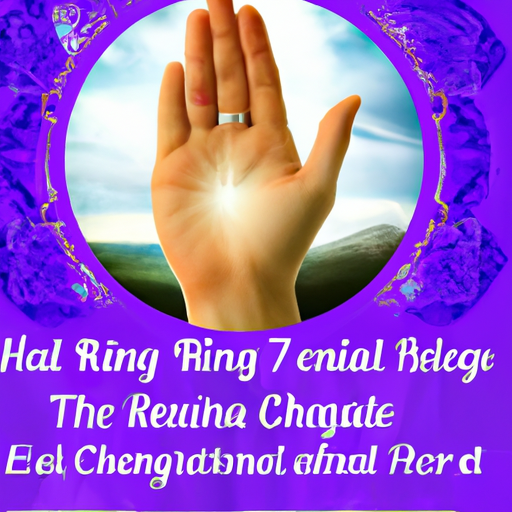
Have you ever wondered about Reiki Healing and whether there are any potential misconceptions surrounding it? Well, you’re not alone! Many people are curious about this alternative healing practice and may have heard various things about it, but are unsure what to believe. In this article, we’ll explore the topic of Reiki Healing in detail and uncover any potential misconceptions, so you can have a clearer understanding of what it is all about.
Now, let’s dive into the world of Reiki Healing. Reiki is a Japanese healing technique that involves the transfer of energy through the hands. It is believed to help promote relaxation, reduce stress, and improve overall well-being. However, there are a few common misconceptions that people may have about Reiki. Some may think that it is a form of magic, while others may believe that it can cure any ailment instantly. In reality, Reiki is not magical, but rather a practice that works with the body’s natural energy system to promote balance and healing. While it can be a complementary therapy to support overall health, it is important to remember that it is not a replacement for medical treatment. So, if you’re interested in learning more about Reiki Healing and debunking any misconceptions, keep reading!
Understanding Reiki Healing
What is Reiki Healing?
Reiki Healing is a holistic practice that originated in Japan in the early 20th century. It involves the use of energy to promote healing and balance in the body, mind, and spirit. Reiki, which means “universal life force energy,” is believed to flow through the practitioner’s hands to the recipient, encouraging the body’s natural healing abilities.
How does Reiki Healing work?
During a Reiki session, the practitioner places their hands gently on or just above the recipient’s body. The practitioner then channels the universal life force energy, allowing it to flow through them into the recipient. This energy can help to release blockages and promote the body’s natural healing processes.
History of Reiki Healing
Reiki Healing was developed by Mikao Usui in Japan in the early 20th century. Usui was a Buddhist monk who sought to find a way to heal both physical and emotional ailments. He was said to have achieved enlightenment during a 21-day retreat on Mount Kurama, which led to the development of Reiki. Usui taught his methods to others, and Reiki Healing began to spread throughout Japan and eventually to the Western world.
Exploring Common Misconceptions
Misconception 1: Reiki is a Religion
One common misconception about Reiki Healing is that it is a religion. While Reiki does have spiritual elements, it is not tied to any specific religious beliefs. The practice is open to people of all faiths or no faith at all. It’s important to understand that Reiki is a complementary therapy that can be used alongside any religious or spiritual beliefs.
Misconception 2: Reiki is a Form of Witchcraft
Another misconception about Reiki Healing is that it is a form of witchcraft or magic. This misconception likely stems from misunderstandings about the energy-based practice. Reiki does not involve spells, rituals, or any form of sorcery. It is simply the channeling of universal life force energy to promote healing and well-being.
Misconception 3: Reiki Healers Can Cure Any Disease
There is a misconception that Reiki healers have the ability to cure any disease. While Reiki can support the body’s natural healing processes and provide comfort to individuals with various conditions, it is not a substitute for medical treatment. Reiki is best used as a complementary therapy to traditional medical care.

Debunking Misconception 1: Reiki is a Religion
Origins of the Misconception
The misconception that Reiki is a religion likely stems from the spiritual aspects of the practice. Some individuals may associate spirituality with specific religious beliefs, leading them to mistakenly categorize Reiki as a religion.
Reiki’s Connection to Spirituality
While Reiki is not a religion, it does have spiritual elements. Reiki practitioners believe in the existence of a universal life force energy and the connection between all living beings. However, these beliefs are not exclusive to any specific faith or religious tradition.
Separating Reiki from Religious Beliefs
It is important to separate Reiki from religious beliefs in order to understand its true nature. Reiki can be practiced by individuals of any faith or no faith at all. The focus of Reiki is on energy healing and promoting overall well-being, rather than promoting a specific religious doctrine.
Debunking Misconception 2: Reiki is a Form of Witchcraft
Origins of the Misconception
The misunderstanding that Reiki is a form of witchcraft may arise from a lack of knowledge about energy healing practices. Some people may associate the use of energy and healing with magical or occult practices.
Understanding Reiki as Energy Healing
Reiki is best understood as a form of energy healing that harnesses the natural energy present in all living beings. It does not involve any magical or supernatural elements. Reiki practitioners simply channel this energy to promote healing and balance.
Addressing the ‘Witchcraft’ Label
Labeling Reiki as witchcraft is a misconception that undermines the validity and purpose of the practice. By debunking this misconception, individuals can gain a clearer understanding of Reiki as an energy healing modality rooted in Japanese traditions.

Debunking Misconception 3: Reiki Healers Can Cure Any Disease
Misinterpretation of Reiki’s Healing Abilities
One common misconception is that Reiki healers have the power to cure any disease. While Reiki can support the body’s natural healing abilities, it is not a guaranteed cure for all illnesses. Reiki should not be seen as a replacement for medical treatment but rather as a complementary therapy that can enhance overall well-being.
The Role of Reiki in Complementary Medicine
Reiki is often used as part of complementary medicine, which works alongside traditional medical treatments. It can help individuals manage stress, reduce anxiety, and support the body’s natural healing processes. However, it is not a substitute for medical care or advice from a healthcare professional.
Setting Realistic Expectations
It is important to set realistic expectations when considering Reiki as a complementary therapy. While it can provide comfort and support, it is not a guaranteed cure for any specific ailment. Each individual’s experience with Reiki may vary, and it is important to approach the practice with an open mind and a willingness to embrace its potential benefits.
Promoting Reiki Healing Benefits
Holistic Approach to Well-being
One of the key benefits of Reiki Healing is its holistic approach to well-being. Reiki addresses the physical, emotional, and spiritual aspects of a person, seeking to restore balance and promote overall health. This comprehensive approach can have a positive impact on various areas of life.
Supporting Relaxation and Stress Reduction
Reiki Healing is known for its calming and relaxing effects. During a session, individuals often experience a deep sense of relaxation, reducing stress and promoting a state of inner peace. This relaxation response can help alleviate symptoms associated with stress-related conditions like anxiety and insomnia.
Enhancing Self-Healing Capacities
Reiki Healing supports the body’s natural self-healing capacities. By channeling universal life force energy, Reiki practitioners provide a gentle boost to the body’s ability to heal itself. This can be particularly helpful for individuals recovering from illness, injury, or surgery.
The Importance of an Open Mind
Challenging Preconceived Notions
To fully understand the potential benefits of Reiki Healing, it is important to challenge preconceived notions and approach the practice with an open mind. By overcoming stereotypes and misconceptions, individuals can fully embrace the possibilities that Reiki offers.
Exploring Personal Experiences and Testimonials
Listening to personal experiences and testimonials from those who have benefited from Reiki Healing can provide valuable insight into the practice. Hearing how Reiki has helped others can inspire individuals to explore its potential benefits for themselves.
Looking at Scientific Studies
While Reiki Healing is a practice rooted in energy and spirituality, some scientific studies have explored its effects. Research has suggested that Reiki can have positive impacts on a person’s well-being and stress levels. Although more research is needed to fully understand the mechanisms behind Reiki, these initial findings contribute to a growing body of evidence supporting its potential benefits.
Seeking Professional Reiki Practitioners
Training and Certification
When seeking a Reiki practitioner, it is important to look for professionals who have undergone proper training and certification. Reputable practitioners will have completed courses and received certifications from recognized Reiki organizations. This ensures that they have the knowledge and skills necessary to provide safe and effective Reiki sessions.
Finding Reputable Reiki Practitioners
To find reputable Reiki practitioners, individuals can seek recommendations from trusted sources such as friends, family, or healthcare professionals. Online directories and professional associations can also provide a list of certified practitioners in a specific area.
Evaluating Practitioner’s Expertise
Before scheduling a session, it is advisable to have a conversation with the practitioner to evaluate their expertise and approach to Reiki Healing. Asking questions about their training, experience, and therapeutic philosophy can help individuals feel more confident in choosing the right practitioner for their needs.
Addressing Safety Concerns
Safe Practices and Ethics in Reiki Healing
Reiki practitioners are expected to adhere to certain standards of practice and ethics. This includes maintaining a safe and comfortable environment for clients, obtaining informed consent, and respecting clients’ boundaries. Reputable practitioners will prioritize the well-being and safety of their clients at all times.
Ensuring Consent and Boundaries
During a Reiki session, it is important for the practitioner to obtain informed consent from the client before beginning any treatment. This ensures that the client is comfortable with the process and understands what to expect. Additionally, practitioners should always respect clients’ personal boundaries and encourage open communication throughout the session.
Providing Proper Aftercare
After a Reiki session, practitioners may provide guidance on self-care practices to support the healing process. This can include recommendations for relaxation techniques, lifestyle changes, or further Reiki sessions. Practitioners should also be available to address any questions or concerns that arise after the session.
Conclusion
The potential misconceptions surrounding Reiki Healing are important to address in order to fully understand and embrace the practice. Reiki is not a religion or a form of witchcraft, but an energy healing modality that can support overall well-being. While it is important to have realistic expectations and seek professional practitioners, Reiki has the potential to enhance relaxation, reduce stress, and support the body’s natural healing processes. By approaching Reiki with an open mind and breaking through misconceptions, individuals can fully embrace the potential benefits that this holistic practice has to offer.









